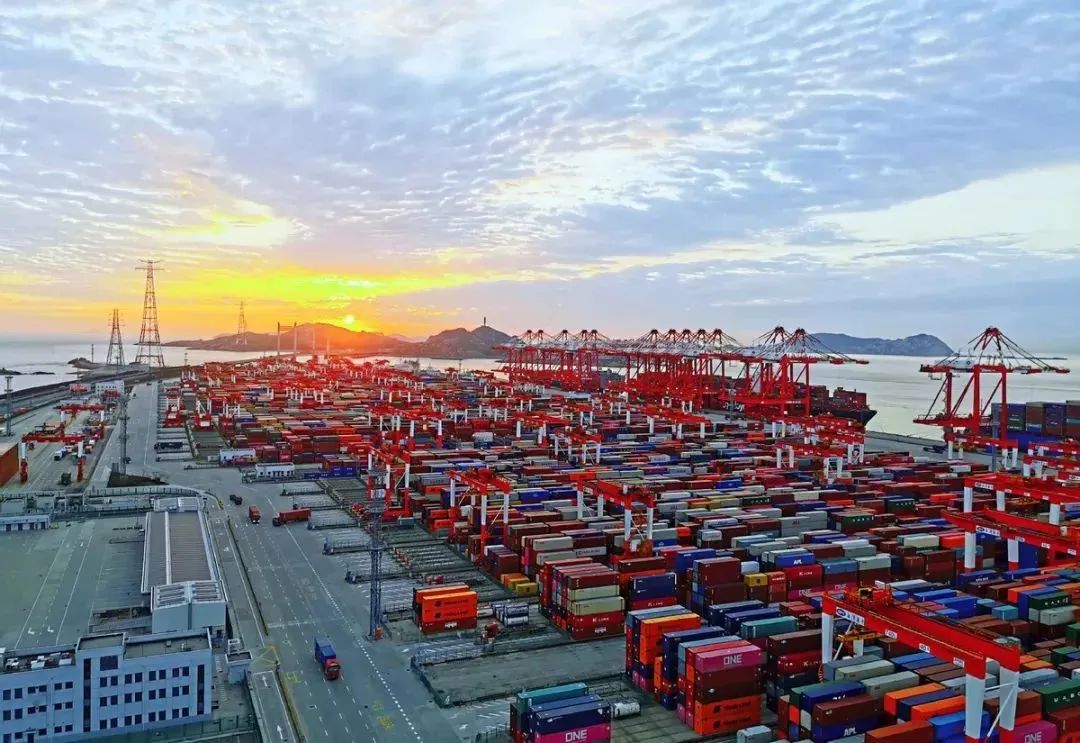Add:1506,Tower West,Jinrun International Plaza,No.85 East Nanxijiang Street,Jianye District,Nanjing,China,210019
Tel: 025-58866358
025-58933315
Fax:025-58867358
E-mail:info@bonagrain.com
The complete implementation of the Regional Comprehensive Economic Partnership agreement will help bolster trade and investment between China and other participating countries, and will advance long-term prosperity and growth for the global economy, according to trade experts and business executives.

▲A view of Shanghai's Yangshan Port in East China. [Photo/Xinhua]
Their comments on Wednesday came after the Philippines deposited its instrument of ratification of the RCEP agreement with the secretary-general of the Association of Southeast Asian Nations on April 3, marking the final step toward the agreement's full implementation.
The trade pact took effect for the first 10 ratifying countries on Jan 1 last year.
Under RCEP rules, the trade deal will take effect for the Philippines 60 days after the deposit of ratification, or June 2. At that time, the world's largest free trade agreement will come into full effect for all 15 signatory countries, the Ministry of Commerce said in a statement on Wednesday.
The ministry said the full implementation of the RCEP pact will meet the needs of China's consumption expansion and upgrade, and consolidate regional industrial and supply chains.
Liu Qing, vice-president of the Beijing-based China Institute of International Studies, said the agreement's full implementation will also expedite the integration of capital, resources, technologies and services, forming a comprehensive cycle of regional economic cooperation.
As a result, RCEP members will be able to accelerate the optimization of resources and promote institutional opening-up, therefore expanding their global presence and strengthening their competitive edge, said Liu.
The integration will also help stabilize regional industrial chains and provide a stronger buffer against external risks, he added.
China's foreign trade with other RCEP economies grew by 7.5 percent year-on-year to 12.95 trillion yuan ($1.88 trillion) in 2022, accounting for 30.8 percent of the country's total exports and imports last year, statistics from the General Administration of Customs show.
China's nonfinancial direct investment in other RCEP countries surged 18.9 percent year-on-year to $17.96 billion last year, while the nation attracted $23.53 billion of investment from other RCEP members, up 23.1 percent year-on-year.
Zhao Ping, vice-dean of the Beijing-based Academy of China Council for the Promotion of International Trade, said the RCEP has boosted the confidence of its member countries in free trade, green development and regional economic integration, particularly amid global geopolitical complexities.
She said the mega pact will facilitate cooperation among countries at different stages of development, providing them with opportunities to work together and benefit from mutual cooperation. The RCEP will also continue to inject vitality into the global economy, making industrial and supply chains more resilient.
According to an estimate by the Washington-based Peterson Institute for International Economics, the RCEP is expected to see a net annual increase of $519 billion in exports and $186 billion in national income of its members by 2030.
As the RCEP has created favorable conditions for boosting two-way investment and foreign trade volume, companies from participating countries will show a stronger inclination to participate in various trade shows in the Asia-Pacific region in the years ahead, said Wolfgang Marzin, president and CEO of Germany's Messe Frankfurt, one of the world's largest trade fair and event organizers by sales revenue.
The Ministry of Commerce said that under RCEP rules, Chinese products, including automobiles and parts, certain types of plastic products, textile and clothing products, air conditioners and washing machines, will enjoy favorable tariff treatment from the Philippines.
After a transitional period, tariffs on these products will gradually be reduced to zero from their current range of 3 to 30 percent of the tariff rate.
Fresh durians from the Philippines were shipped to China last week, after China and the Southeast Asian country signed an export protocol in Beijing in January.
From pineapples to avocados, and now durians, the vast Chinese market is constantly generating fresh business opportunities for the Philippines, said Ding Lixin, a researcher at the Chinese Academy of Agricultural Sciences in Beijing.
Reporter: Zhong Nan


